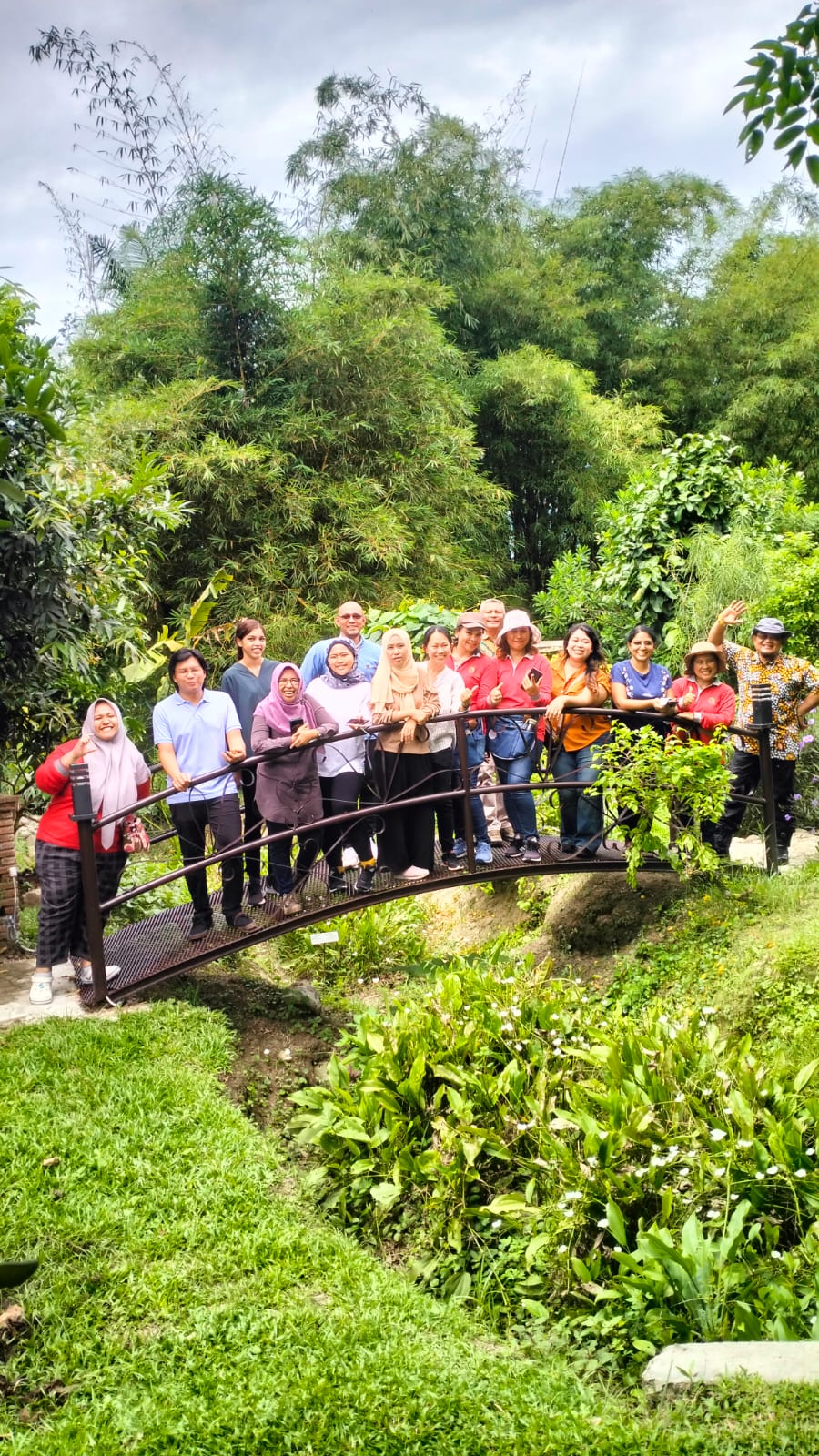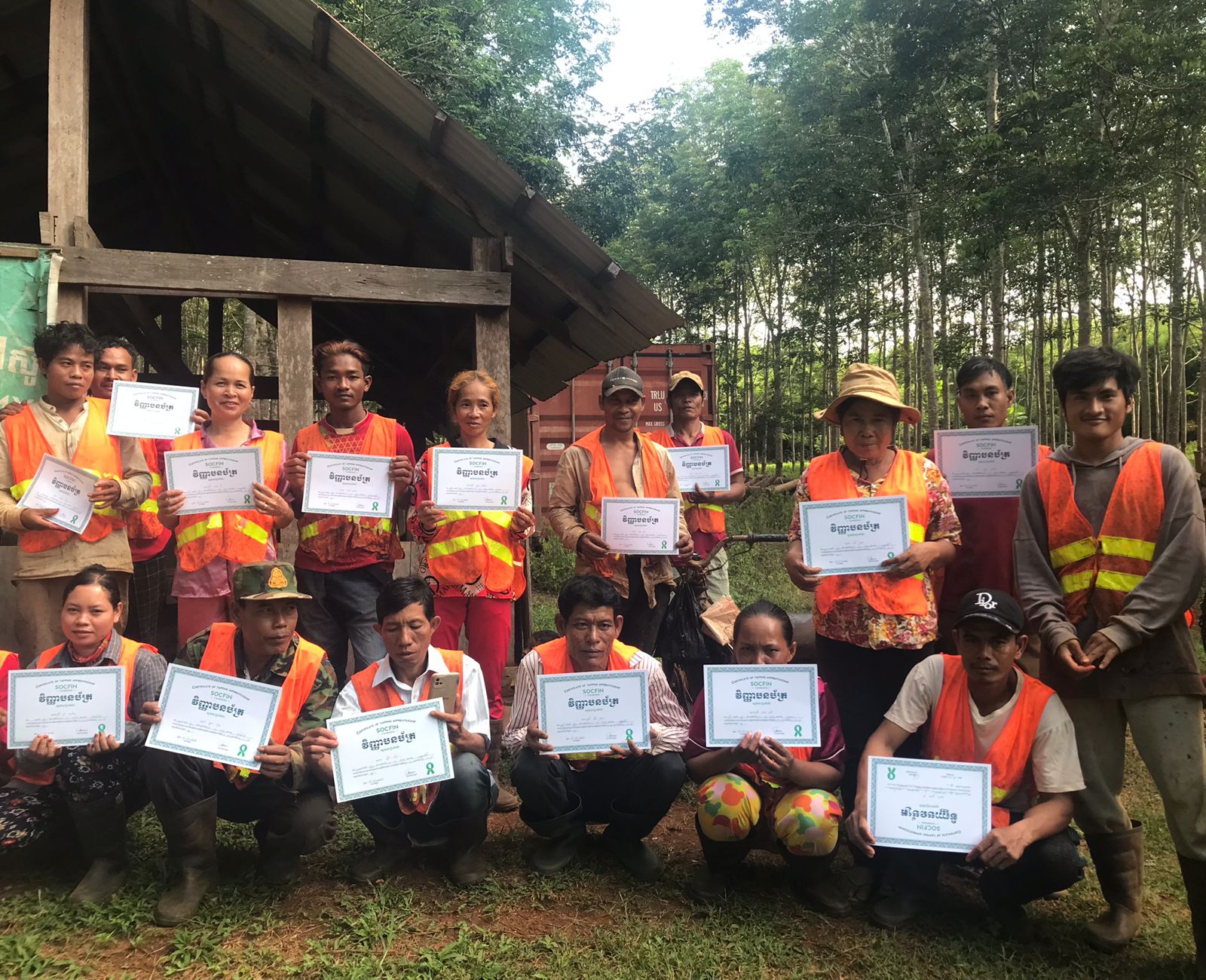Cameroon
27.7
47 544 000 ha
150 000 T
Cameroon
Cameroon has an abundant supply of raw materials such as palm oil and rubber. It is a country where the agro-industry occupies a prominent place in the industrial sector.
- Palm oil
For centuries, palm oil – also known as red oil – has been an integral part of the people’s diet in Central Africa, particularly in Cameroon, where it is highly appreciated for its flavor and low cost.
In Cameroon, urbanization and population growth have led to an increase in palm oil demand and hence a more intensive oil palm cultivation. Smallholder plantations have multiplied.
After its independence, the government launched an investment program for the large industrial plantations to address the palm oil shortage on the local market. Nonetheless, Cameroon is presently still obliged to import 50% of its domestic vegetable oil needs
Since 2012, the country’s agro-industry, supported by the central government and the WWF, has collaborated to implement the 8 Principles and 39 Criteria of the RSPO (Roundtable on Sustainable Palm Oil). The aim of this organization is to reduce deforestation, preserve biodiversity and respect the rural communities’ livelihoods.
- Rubber
In future, natural rubber production could constitute a real cash crop for Cameroon’s villagers.
This raw material offers two undeniable advantages to its producers:
- It provides a permanent income throughout the year;
- It does not degrade (an important factor when transport or sales opportunities are not immediately available).
As an important catalyst for development in remote areas, rubber cultivation also enables the production of pure green energy: natural rubber is a substitute for synthetic rubber (a petroleum distillation product) and serves as a significant carbon sink.
Rubber production, primarily for export, is a significant source of foreign currency for Cameroon.
LINKS
THE BAGYELIS PYGMIES
In Cameroon, around 6 000 Bagyeli and Bakola pygmies live on a territory of almost 12 000 km2 in the southern part of the country.
Bagyeli culture is mainly based on its relationship with the forest. They hunt and fish there, cut wood for their houses, gather fruit and leaves and harvest honey. For the pygmies, “the forest is the place where nature spirits watch over them, protect them or, on the contrary, punish them”. Their practices in the forest are renowned for their sense of protecting biodiversity: they only take what they need, without destroying the flora and fauna, thus allowing nature to regenerate. Unfortunately, their biodiversity-protecting way of life is not to their advantage, as the laws do not recognize their way of developing the land (no construction in permanent material, no planting, etc.).
Most of them still live in villages deep in the forest, sometimes more than 10 km apart. In the past, for this nomadic people, these sites were merely places of passage; today, they are places where the pygmies live and semi-sedentarize.
Nevertheless, as they still hunt over vast areas, they are sometimes away from home for several days or weeks at a time.
A Pygmy community of around 150 people, made up of 12 villages, lives close to the Kienké plantation, where they live alongside both Hévéacam and Socapalm.
The Kienké plantation tries to play an active role in the integration of the pygmies, by facilitating their access to health care and improving access to schooling for the youngest and teenagers by taking charge of their schooling, providing teaching materials, school uniforms, paying school fees, providing bench-tables, repairing their classrooms, etc., or by taking charge of teachers’ salaries.
A framework for exchange and dialogue has been established with the 12 Bagyélis communities surrounding the Kienké plantation, with the support of the NGO BACUDA (Bagyelis Cultural Development Association) represented by its President Biloa Jeanne. A project of community interest, financially supported by Socapalm, has been set up to provide the NGO with the necessary financial resources to assist the communities in their request to establish birth certificates for the Bagyelis. To strengthen relations with these communities, the Kienké plantation plans to set up a bipartite meeting platform (SOCAPALM- BAGYELI).
Latest news
Journée mondiale de la Santé et de la Sécurité au travail à la Socapalm
La Conférence internationale du travail (CIT) a récemment rajouté "un environnement de travail sûr et sain" aux principes et droits fondamentaux au travail de l'OIT. Pour promouvoir ce droit fondamental et dans le cadre de la journée mondiale de la santé et de la...
Remise de médailles d’honneur du travail à la Socapalm
La Socapalm a procédé à la remise des médailles d'honneur du travail à 995 employés les 12 et 13 novembre dernier. Cette cérémonie qui contribue fortement à l'épanouissement du personnel a été ponctuée de moments forts et de grandes émotions. elle s'est déroulée...
Agro-alimentaire: Socapalm investit 150 milliards en vingt ans
L’entreprise qui a globalement bien résisté à la Covid-19, produit aujourd’hui 40% de l’huile de palme consommée au Cameroun. La Société camerounaise des palmeraies (Socapalm), célèbre cette année le vingtième anniversaire de sa privatisation, survenue dans les années...






